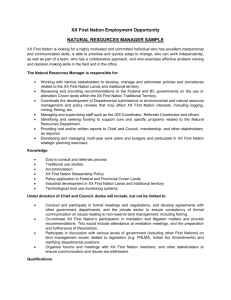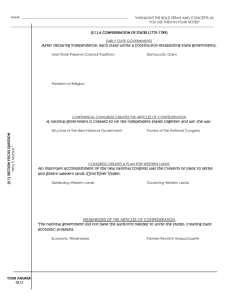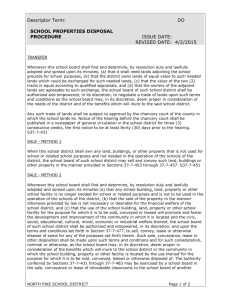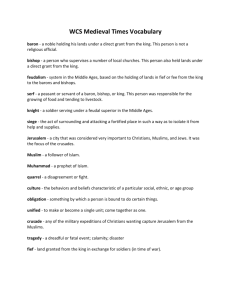Policy Primer: State Attempts to Gain Control of Federal Land
advertisement
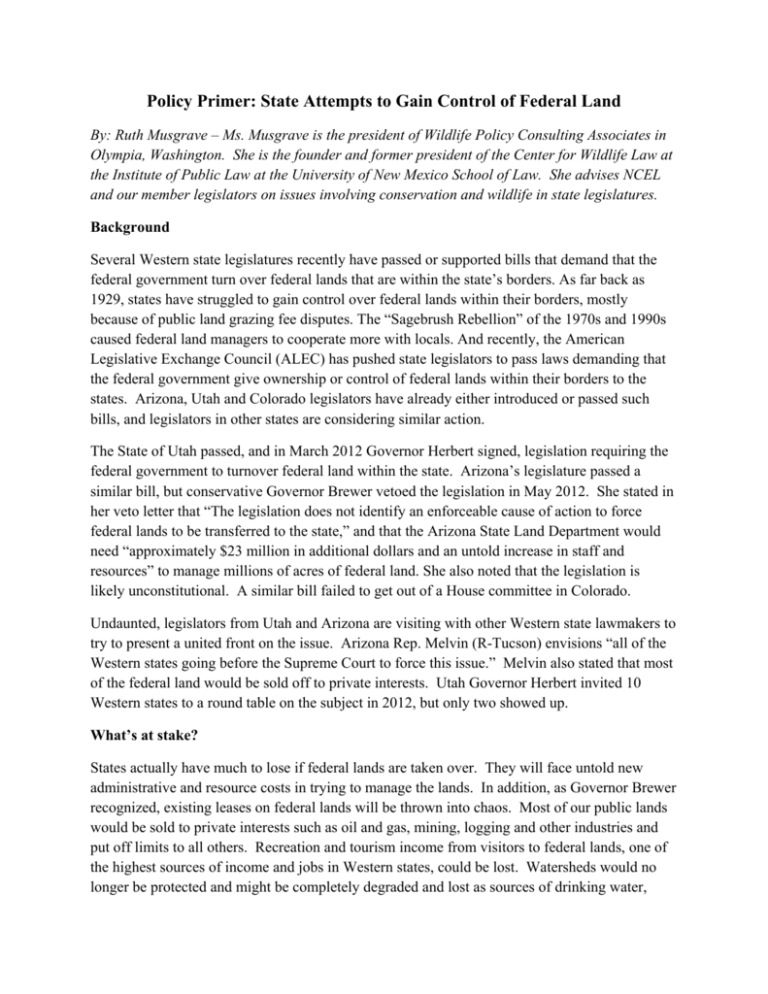
Policy Primer: State Attempts to Gain Control of Federal Land By: Ruth Musgrave – Ms. Musgrave is the president of Wildlife Policy Consulting Associates in Olympia, Washington. She is the founder and former president of the Center for Wildlife Law at the Institute of Public Law at the University of New Mexico School of Law. She advises NCEL and our member legislators on issues involving conservation and wildlife in state legislatures. Background Several Western state legislatures recently have passed or supported bills that demand that the federal government turn over federal lands that are within the state’s borders. As far back as 1929, states have struggled to gain control over federal lands within their borders, mostly because of public land grazing fee disputes. The “Sagebrush Rebellion” of the 1970s and 1990s caused federal land managers to cooperate more with locals. And recently, the American Legislative Exchange Council (ALEC) has pushed state legislators to pass laws demanding that the federal government give ownership or control of federal lands within their borders to the states. Arizona, Utah and Colorado legislators have already either introduced or passed such bills, and legislators in other states are considering similar action. The State of Utah passed, and in March 2012 Governor Herbert signed, legislation requiring the federal government to turnover federal land within the state. Arizona’s legislature passed a similar bill, but conservative Governor Brewer vetoed the legislation in May 2012. She stated in her veto letter that “The legislation does not identify an enforceable cause of action to force federal lands to be transferred to the state,” and that the Arizona State Land Department would need “approximately $23 million in additional dollars and an untold increase in staff and resources” to manage millions of acres of federal land. She also noted that the legislation is likely unconstitutional. A similar bill failed to get out of a House committee in Colorado. Undaunted, legislators from Utah and Arizona are visiting with other Western state lawmakers to try to present a united front on the issue. Arizona Rep. Melvin (R-Tucson) envisions “all of the Western states going before the Supreme Court to force this issue.” Melvin also stated that most of the federal land would be sold off to private interests. Utah Governor Herbert invited 10 Western states to a round table on the subject in 2012, but only two showed up. What’s at stake? States actually have much to lose if federal lands are taken over. They will face untold new administrative and resource costs in trying to manage the lands. In addition, as Governor Brewer recognized, existing leases on federal lands will be thrown into chaos. Most of our public lands would be sold to private interests such as oil and gas, mining, logging and other industries and put off limits to all others. Recreation and tourism income from visitors to federal lands, one of the highest sources of income and jobs in Western states, could be lost. Watersheds would no longer be protected and might be completely degraded and lost as sources of drinking water, agriculture and other resource uses. Private industries, whether gaining title or access through sale, lease or outright gift of public land, would degrade and foul the land, air, and water as federal lands are developed solely for corporate profit. These state efforts to take over federal lands are backed by industry that sees an opportunity to open all federal lands to limitless resource development. ALEC has pushed this issue as early as 1995, and considers as a model Utah’s language providing for opening those lands to drilling, mining, exploration and logging, even in national parks. State takeover of federal lands is supported by conservative national candidates such as Mitt Romney and Ron Paul. The 2012 Republican Presidential Nominee, Mitt Romney, has stated that he does not see the point of “public lands.” Political arguments that states need federal lands for public education funding, or that federal lands are “locked up” or mismanaged from afar are untrue. Most state lands that exist today are not adequately managed because of state budget limitations, do not provide funding for education, and many have ended up being sold off, usually to corporations. Utah and Arizona “can barely keep their state parks open.” And federal lands have always been managed locally by federal employees. Surveys have shown that Western residents choose to live in their Western states because of the clean air, water and land, and the scenery, wildlife and outdoor recreation. The West is special because of freedom to roam the land and enjoy hiking, camping, hunting, fishing and other recreation. Citizens need to be educated on this issue and what is at stake. In short: “The West desperately needs a larger and informed public of sagebrush patriots.” Our future and our children’s future may depend upon it.


